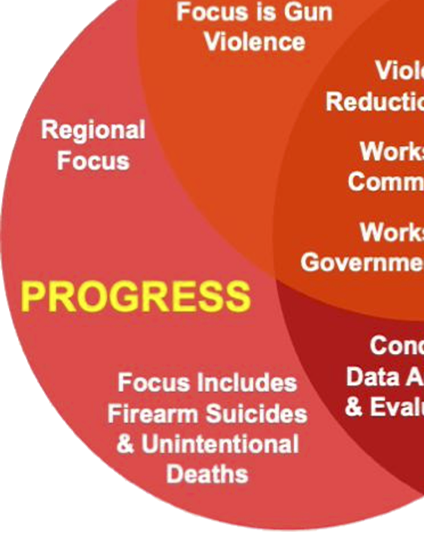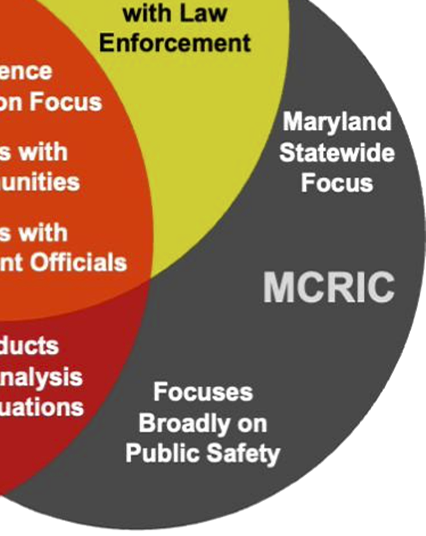BSOS in Action ~ Violence Reduction
Violence Reduction
The College of Behavioral and Social Sciences (BSOS) at the University of Maryland offers unique expertise in violence reduction. Through research, practice, and innovation, we collaborate with community stakeholders, nonprofit groups, elected officials, and public safety agencies to inform policy and to make communities safer.
BSOS is home to the #1 ranked Department of Criminology and Criminal Justice in the United States and has several additional departments that focus on violence reduction. We also have three signature initiatives that offer complementary approaches to addressing violence and related public safety concerns through science and research, forming a powerful hub for knowledge and practice:
The Center for the Study and Practice of Violence Reduction (VRC) provides practical, tailored guidance to leaders, elected officials, and decision-makers on identifying the right combination of evidence-informed anti- violence strategies for their jurisdiction. The VRC also gathers rigorous research, synthesizes it, and makes it available in accessible formats to guide violence reduction efforts. Led by Thomas Abt, and originally launched with support from Arnold Ventures, the VRC has worked with cities across the country, including Boston, Knoxville, and St. Louis, to help decrease gun violence.
The Maryland Crime Research and Innovation Center (MCRIC) provides data analysis, evaluation, and research expertise to support public safety efforts in jurisdictions and communities across Maryland. Across Maryland, MCRIC partners with law enforcement, community groups, and state and local officials. MCRIC has also embedded graduate students as data analysts in multiple jurisdictions to inform public safety strategies. Led by Bianca Bersani, MCRIC engages in research including community-based violence reduction interventions, pretrial processes, bail reform, and behavioral health. It also offers strategic data analysis and research support to the Governor’s Office of Crime Prevention and Policy.
Prevent Gun Violence: Research, Empowerment, Strategies and Solutions (PROGRESS) uses a multi-disciplinary community empowerment approach to reduce firearm-related violence. PROGRESS partners engage directly with communities to produce research, education, and evidence-based actionable gun violence interventions to promote public safety. To advance gun violence reduction, the initiative draws on multiple kinds of data, including public health and criminal justice/legal sources. Led by Joseph Richardson and Woodie Kessel, PROGRESS collaborated with the Consortium of Universities of the Washington Metropolitan Area and the 120 Initiative to provide policy recommendations designed to decrease the number of gun deaths and injuries, including strategies related to community violence intervention, safe storage, technology, translational science and training programs.






